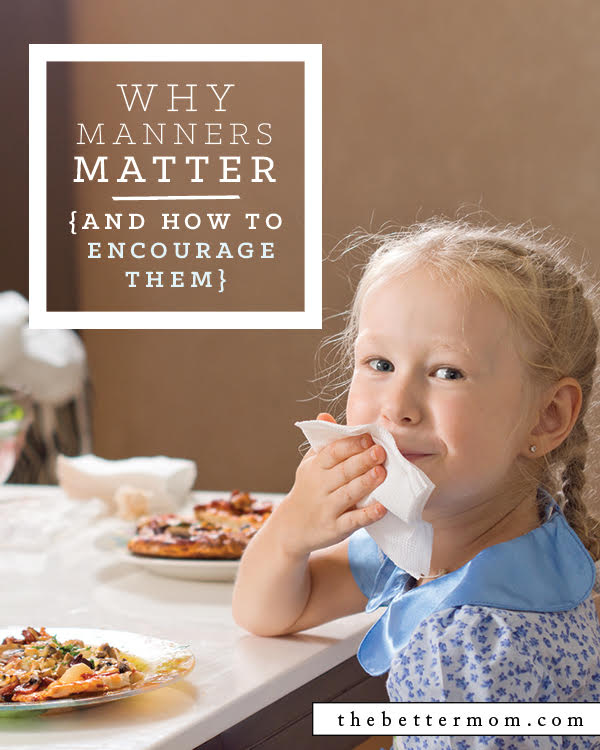Why Manners Matter (And How to Encourage Them)
"Do nothing from selfishness or empty conceit, but with humility of mind regard one another as more important than yourselves ..." Philippians 2:3
When meeting people for the first time, do your children feel confident, or are they nervous? If invited to a formal dinner, do they hesitate to accept? Do they tend to avoid new social situations?
Recently, in pondering the idea of teaching my own children manners, it has occurred to me that perhaps this kind of hesitant behavior isn't always due to pure shyness on the part of a child. And of course, even those children who are naturally shy will need to live and work in a world full of people! Everyone can benefit from training in true manners. While manners are considered old-fashioned by some, there's something intrinsically known within a person's soul--there is a way to behave which enhances the enjoyment and comfort of those around us, and another way to behave which has the opposite effect.
Sally Clarkson writes this in her book, 10 Gifts of Heart:
Manners are not about “me,” but about others. At their heart, manners are about the social and spiritual poise that enables one to become skilled in relating to other people in any situation—setting them at ease, maintaining a sense of social confidence, and exercising self-control in any situation. Manners are graciousness in action—the extension of grace to others that makes them feel noticed, accepted, and affirmed. Just as God’s grace does for us.
Isn't this what we want to see in our children's lives--an extension of grace that is like what God offers to us? Once again, I'm reminded that my children don't just now how to behave intrinsically, and while some pick up gracious manners simply by being around them, most do not. Even older children may find themselves feeling unsure of themselves in pressured situations, if they haven't been trained in advance.
So consider making manners training part of your regular routine. Talk with your children at the table about placing their napkins on their laps before they begin, drinking without gulping their beverage too quickly or loudly, taking small bites. When you're about to meet new people, perhaps give them some background information regarding those people, and encourage your child to think in advance of a question or two they might ask when they're introduced. Play a game where you give an example of unmannerly behavior followed by an example of appropriate behavior, and ask which way they themselves ought to choose!
At their foundation, manners are based upon caring more for the other person than we do ourselves. Often, children are nervous because they are concerned about what their companions think about them; if their hair looks all right, if they can tell a funny joke; if their house or toys appear to be more expensive. If we prepare our children to behave graciously in advance in many circumstances, and then ask the Lord to help us all remember to put other people first in our minds and hearts, we will find ourselves more comfortable in social situations--and in possession of true manners, indeed.
Share this post:








